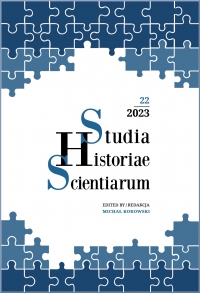Thomas Kuhn, Stefan Amsterdamski, and the Cycles of Scientific Development
Thomas Kuhn, Stefan Amsterdamski, and the Cycles of Scientific Development
Author(s): Anna Martin-MichalskaSubject(s): History, Social Sciences, Education, Sociology, History of ideas, History of Education, Methodology and research technology, Evaluation research
Published by: Wydawnictwo Uniwersytetu Jagiellońskiego
Keywords: development of science; cognitive development; discontinuity; developmental cycles; paradigm; ideal of science; criticism
Summary/Abstract: In his most seminal work, The Structure of Scientific Revolutions, Thomas S. Kuhn advances a notion that science is embedded in historically contingent constellations of practices and ideas. In this view, history is part and parcel of science. Science develops by transforming that, which it emerges from – a theme later picked up by Polish philosopher of science, Stefan Amsterdamski. Kuhn also noticed important parallels between psychological and historical development. These insights have led him to the conclusion that what scientists do and what the science does are two different things. Scientific development is discontinuous in the sense that it cannot be measured by any external standard. Science is therefore its own judge. This paper identifies critical shortcomings of Kuhn’s theory of psychological development, which most affect his vision of scientific development. Subsequently, the problem of development is recast in terms of dynamic system theory or embodied cognition. The ensuing insights are organized into a cyclical model, with two main trajectories: one creative, the other generative. It is argued that the cyclical approach permits to overcome the dualisms, which plagued Kuhn’s original account (engagement versus criticism, creativity versus rule-following, etc.) and to further develop Amsterdamski’s idea that absent universal norms or standards, criticism and rationality are nonetheless possible.
Journal: Studia Historiae Scientiarum
- Issue Year: 2023
- Issue No: 22
- Page Range: 259-289
- Page Count: 31
- Language: English

